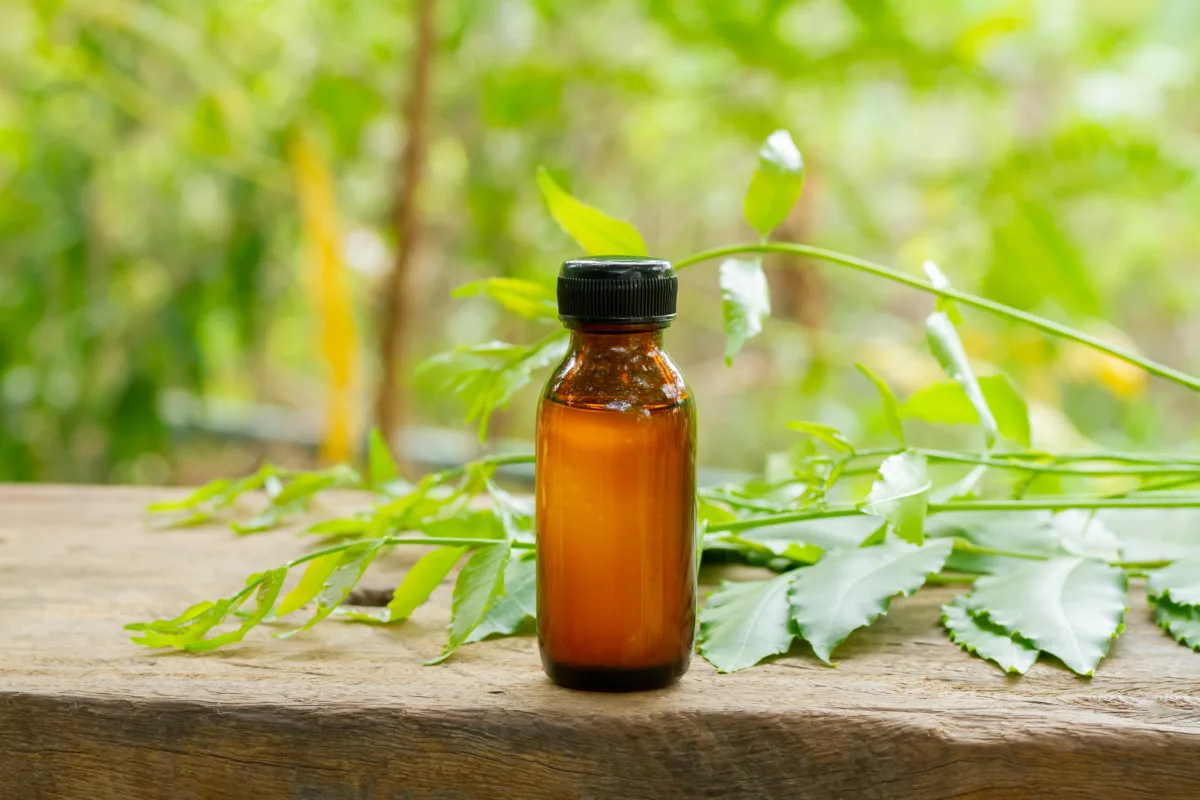Neem oil is a unique natural insecticide and pesticide that can be used to protect plants from harmful pests. Although it may sound complicated, mixing neem oil for plants is simple, safe, and easy to do.
If you’re interested in using neem oil as an alternative or companion plant-care product, this article will serve as your ultimate resource on how to mix neem oil for plants. Read on to find out more!
How to Mix Neem Oil for Plants: The Easiest Recipe
What is Neem Oil?
Neem oil is extracted from the seeds of the neem tree that is cultivated mainly in India. It is a powerful insecticide and fungicide that can be used to protect plants from harmful pests. It’s also a natural plant fertilizer that can promote growth.
It is a multipurpose product that can be used to cure various garden and indoor plants, as well as be used as a natural remedy for skin conditions, allergies, and inflammation.
Neem oil is safe to use around pets and children when used according to instructions. It can be applied topically on pets, used as a natural remedy for skin conditions, and applied to indoor plants as a natural insecticide.
Why Use Neem Oil for Plants?
There are many reasons to use neem oil for plants. It can help prevent pests and diseases from destroying your garden. It also has a number of health benefits for the soil, plants, and humans. Here are some of the most important reasons to use neem oil for plants: –
- Protects plants from pests and diseases – Neem oil can be used to prevent and kill pests like aphids, leaf hoppers, mealybugs, whiteflies, and more. It can be used as a systemic pesticide to treat vegetables, fruits, and flowers against harmful pests.
- Moisturizes soil – Because neem oil acts as a fertilizer, it can improve the drainage in soil and reduce water retention. This helps prevent plants from rotting and dying. It also prevents soil from becoming too alkaline or acidic, which can be a problem if not corrected.
- Promotes growth – The same qualities that help soil stay healthy also promote plant growth. The fertilizer and moisturizing properties of neem oil can boost plant growth and improve yields. You can use neem oil on indoor plants to help them grow healthier and faster.
- Better taste and quality – The natural health benefits of neem oil can be passed on to the plants it is used on. This can improve the taste and quality of the soil and plants.
- Environmentally friendly – Neem oil is all-natural, organic, and biodegradable. It does not harm humans and can be easily broken down by soil microbes. This makes it a safe and environmentally-friendly choice for plant care.
How to Mix Neem Oil for Plants: Step by Step
Here’s a step-by-step guide on how to mix neem oil for plants using the most common ratio: –
When using neem oil for the first time, it’s best to start with a low dosage. Mix a quarter of a teaspoon neem oil with a liter of water. This is equivalent to 1/16 of a teaspoon per liter of water. – Once you have tested on a few plants and found that they are not being harmed, you can increase the dosage to 1/16 of a teaspoon per liter of water. – When mixing neem oil for the garden, mix one liter of water and one tablespoon of neem oil. This is equivalent to 1/16 of a teaspoon per liter of water. – When mixing neem oil for indoor plants, mix one teaspoon of neem oil with one liter of water. Be sure not to add too much neem oil as it can be harmful to the plant.

How to Mix Neem Oil for Gardens: A Trick of the Trade
If you’re planning to use neem oil for your garden, it’s best to mix it with water to ensure that it is easily absorbed by the soil. You can also buy ready-made neem oil solutions that are available at garden supply stores. It’s easy to mix neem oil with water and pour it over your garden.
You can use a sprayer to distribute the solution evenly, or pour it directly over the plants. You can also pour some neem oil into a watering can and water your garden with the solution.
Neem Oil Dosage for Plants and Gardens
Here are some recommended dosage rates for neem oil based on the area to be treated: –
- For indoor plants and houseplants, mix one teaspoon of neem oil with one liter of water.
- For a small garden, mix one tablespoon of neem oil with one liter of water.
- For a large garden, mix one liter of water with one cup of neem oil. Compared to synthetic pesticides, neem oil is relatively safe to use on plants. It is very toxic to insects, however, so it is important to be careful when using it.
Summary
Neem oil is a natural insecticide that can be used to treat and protect plants from pests and diseases. It can also be used as a natural remedy for skin conditions and as a fertilizer to promote growth. When using neem oil, mix one liter of water with one teaspoon of neem oil for indoor plants, and mix one liter of water with one cup of neem oil for a large garden.
Neem oil is relatively safe to use compared to synthetic pesticides. However, it can cause skin irritation when applied directly to the skin and can be harmful to bees.